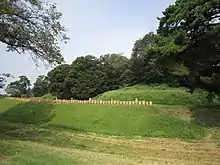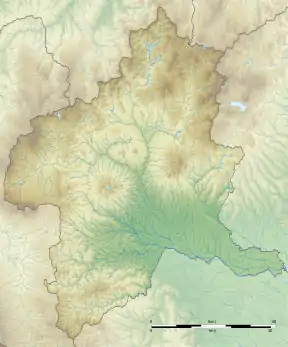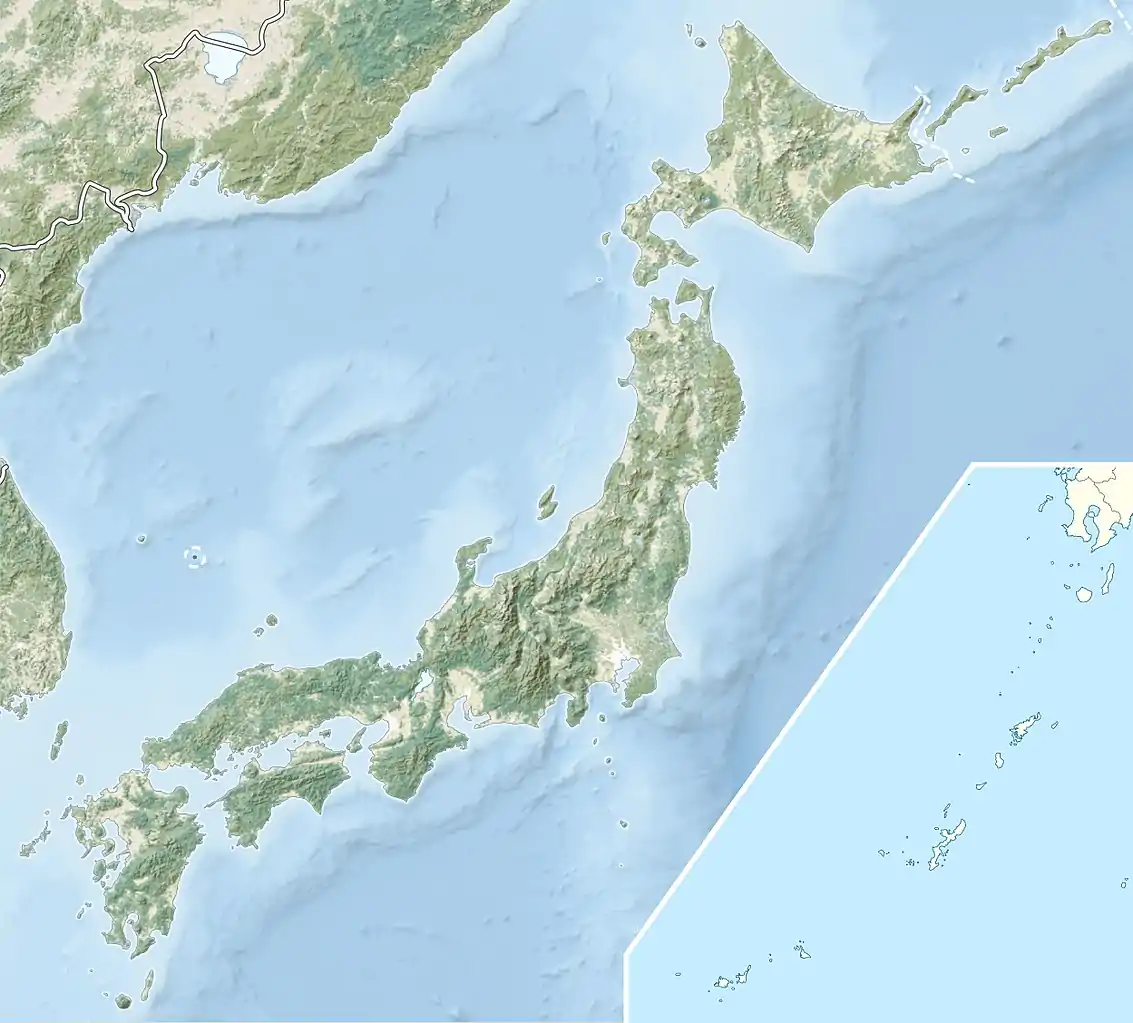Nakafutago Kofun
Nakafutago Kofun (中二子古墳) is a Kofun period keyhole-shaped burial mound located in the Nishi-Ōmuro neighborhood of what is now the city of Takasaki, Gunma Prefecture in the northern Kantō region of Japan. It was designated a National Historic Site of Japan in 1927.[1] It is estimated to have been built around beginning of the 6th century and is part of a group of at least six kofun which were concentrated in the vicinity, forming the Ōmuro Kofun Cluster. Within the Ōmuro Kofun Cluster is also the Maefutago Kofun and the Ushirofutago Kofun, which have a separate National Historic Site designations.
中二子古墳 | |
 Nakafutago Kofun | |
 Nakafutago Kofun  Nakafutago Kofun (Japan) | |
| Location | Maebashi, Gunma, Japan |
|---|---|
| Region | Kantō region |
| Coordinates | 36°23′14.3″N 139°11′41.3″E |
| Type | kofun |
| History | |
| Founded | early 6th century |
| Periods | Kofun period |
| Site notes | |
| Public access | Yes (Park} |
_1986.jpg.webp)
Overview
The tumulus is located on a low hill at the southern foot of Mount Akagi. It is the largest in the Ōmuro Kofun Cluster with a total length of 111 meters, with a posterior circular portion in two tiers and an anterior rectangular portion two tiers, and is orientated to 89 degrees northeast. Part of the mound is carved out of the ground, and only the upper tier was originally covered in fukiishi. Cylindrical, house-shaped and other types of haniwa were also excavated in profusion, and it is estimated that originally over 3000 haniwa were in rows on the mounds. The tumulus is surrounded by a shield-shaped double moat with crossings on the north and west sides. Although excavated in March 1891, no burial chamber was discovered.
- Overall length: 111 meters
- Posterior circular portion: 66 meter diameter x 15 meters high
- Anterior rectangular portion: 79 meters wide
The surrounding area is now maintained as Ōmuro Park.
References
- "中二子古墳" (in Japanese). Agency for Cultural Affairs. Retrieved August 20, 2020.
External links
![]() Media related to Omuro Park at Wikimedia Commons
Media related to Omuro Park at Wikimedia Commons
- Gunma Prefecture tourism site (in Japanese)
- Maebashi City guide (in Japanese)